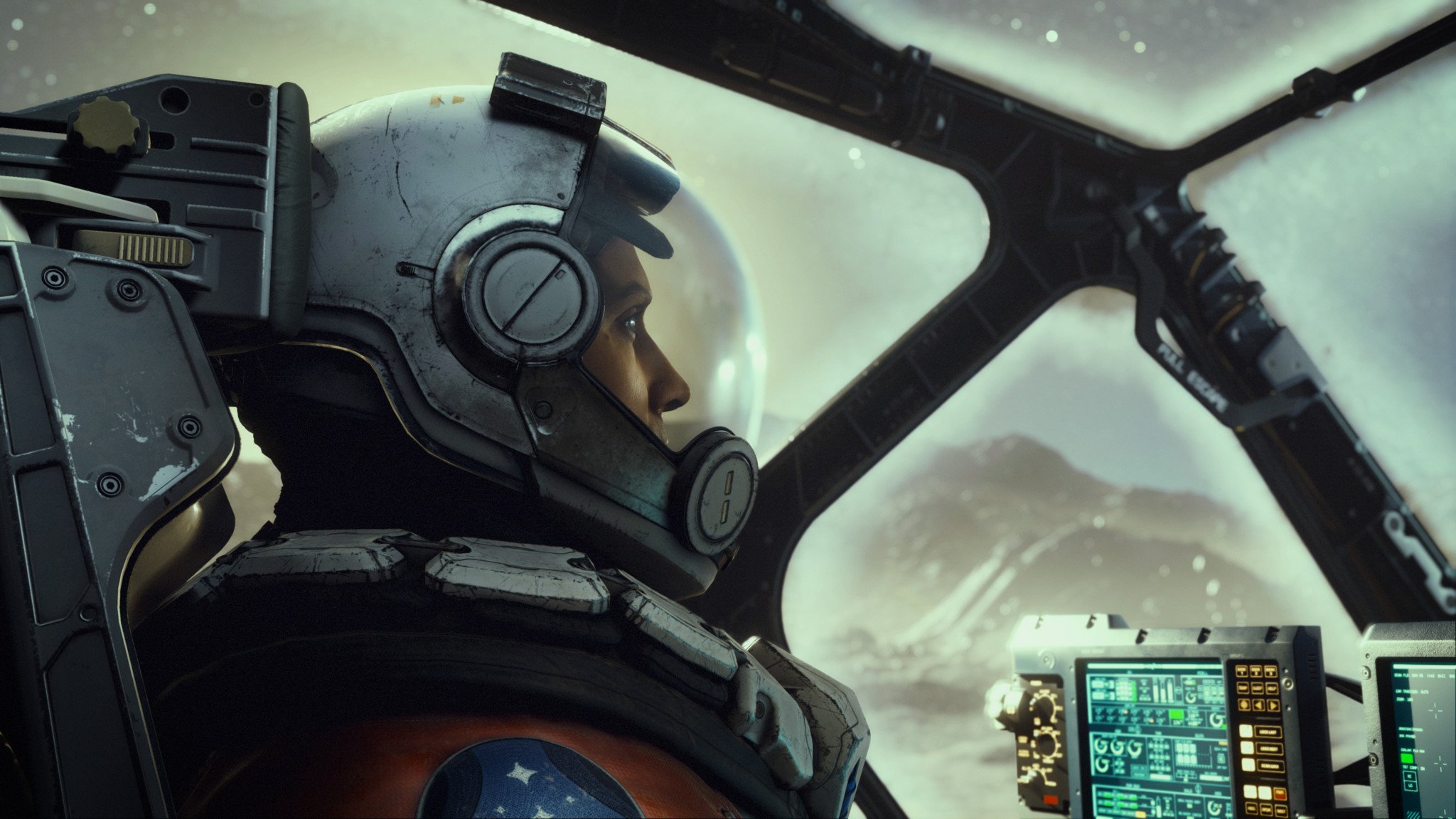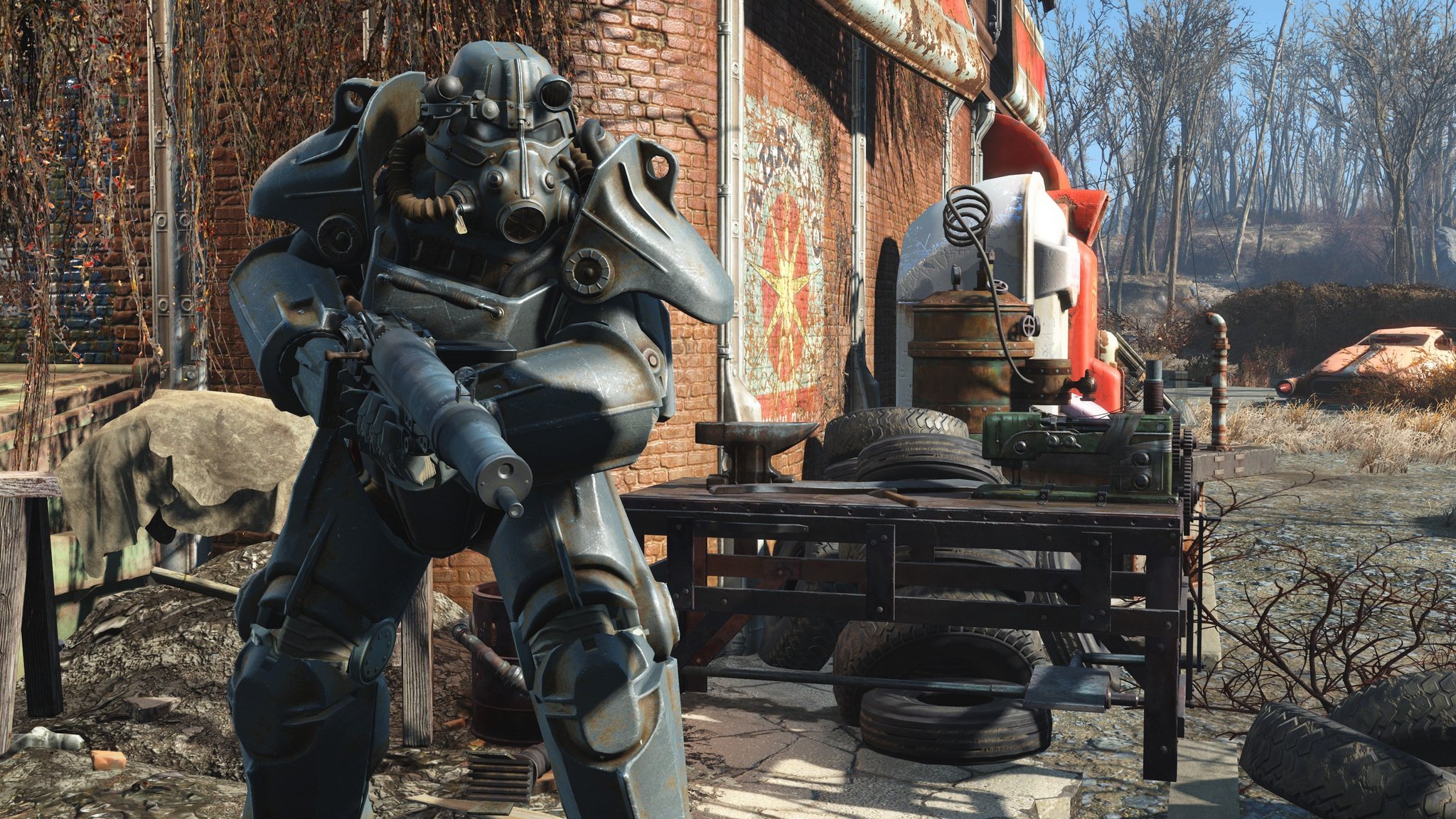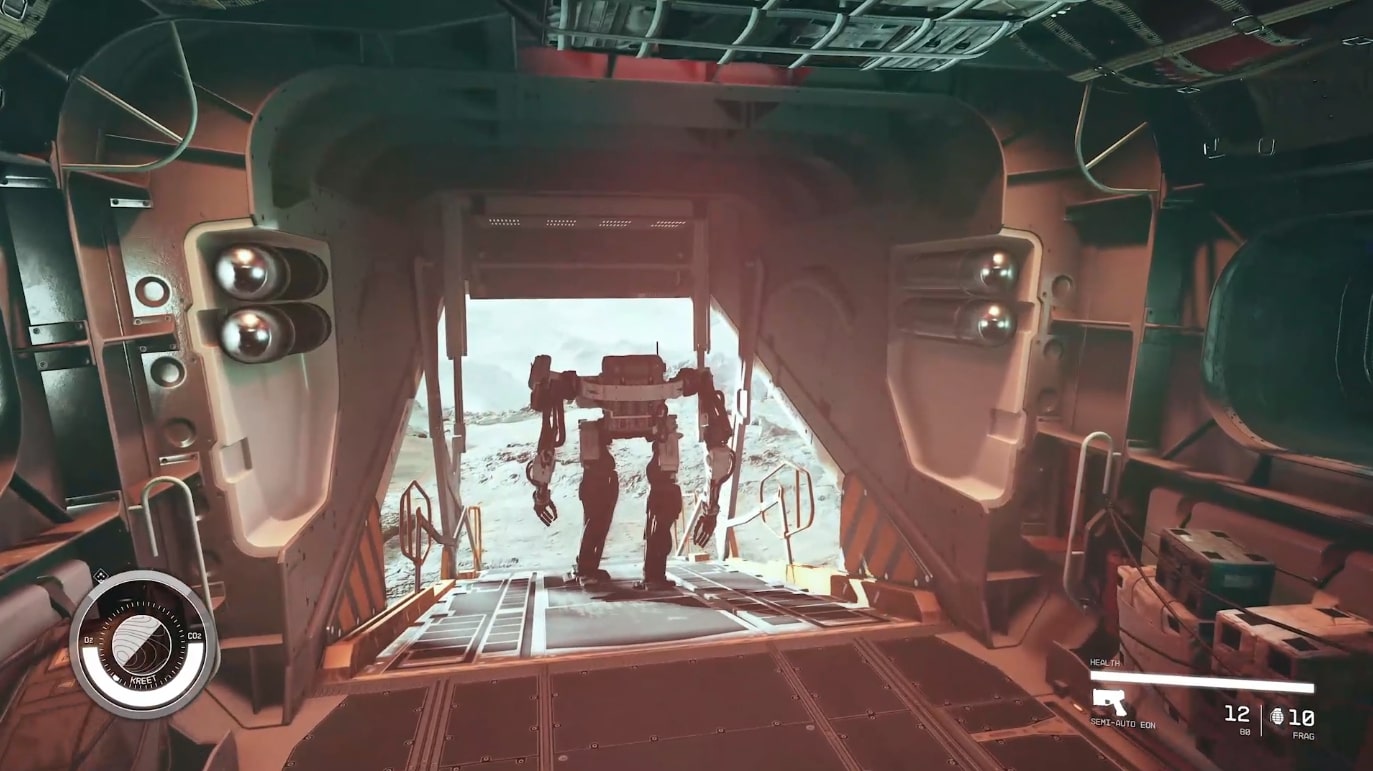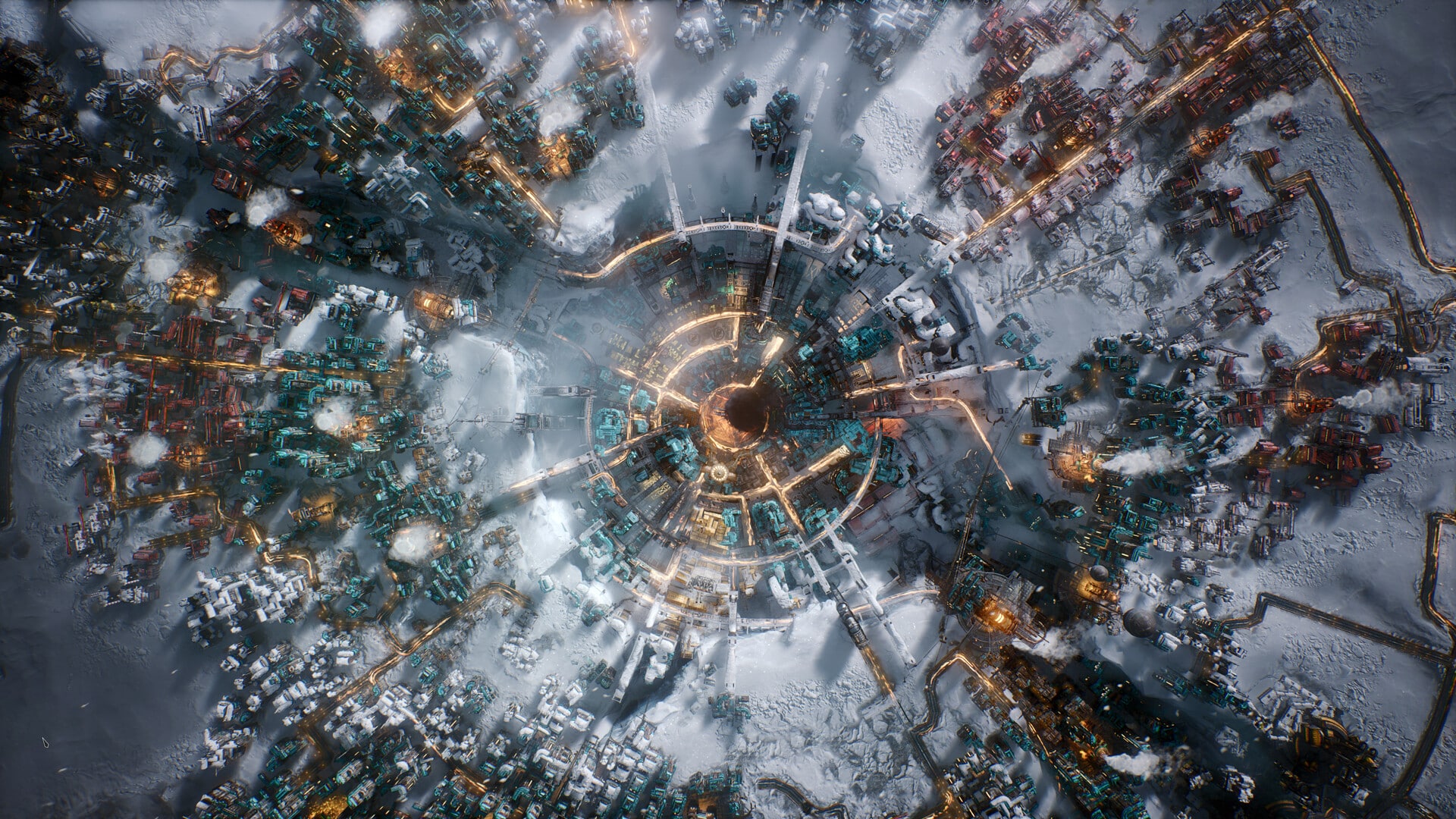Starfield almost looks too good to be true. What’s the catch?
The scale of Bethesda's new RPG is so big that it scares me.

Everyone knew that Starfield's gameplay reveal would steal the show at the Xbox and Bethesda Games Showcase, but I don't think anybody was expecting the game to be so damn big.
Bethesda's 15-minute gameplay showcase for its ambitious sci-fi RPG revealed a crazy amount of information about the game, hinting at everything from massive universe-wide conflicts between factions to intricate crafting mechanics that allow players to create a ridiculous number of consumables, upgrades, and weapon mods. Starfield will also feature deep skill trees with abilities and traits that can be ranked up over time, base and shipbuilding systems, space flight and combat, and — get ready for this — over 1,000 planets that players can fully explore.
The sheer scale of Starfield is almost unheard of for a handcrafted single-player RPG, and while everything shown during the gameplay reveal looked amazing, it almost seems too good to be true. It's easy to get swept up by the hype for an experience that has this many bells and whistles.
If anything, the reveal at the Xbox & Bethesda Showcase raised more questions. How many of those 1,000 planets are actually exciting and satisfying to explore? Does the game's universe respond to my actions in meaningful, dynamic ways? Do systems like base building and space combat actually matter? Will the game end up being as deep as it is wide?

I can't help but think of Fallout 4, another "wide" Bethesda-developed game that suffered greatly due to elements that weren't properly fleshed out. Large swathes of its map lacked interesting locations or NPCs, instead largely being filled out with generic bandit camps and ghoul-infested ruins. Its settlement base building systems also had little-to-no impact on the game world, making them feel less like a core part of the experience and more like a tacked-on afterthought.
The story, choice, and dialogue systems were also a severe step down compared to previous franchise installments, with the game often railroading you through scripted story moments regardless of your selected speech options. As a result of these issues, Fallout 4 was (and still is) often shunned in favor of its predecessors, and its reception proves that the size of a game doesn't matter when there aren't meaningful ways to engage with the world.
Will the game end up being as deep as it is wide?
Cyberpunk 2077 is another example of an RPG with similar problems (and one that promised a lot and didn't deliver). There was little you could do to interact with Night City or its inhabitants outside of scripted quests, making much of the map feel purposeless. On top of that, the game constantly drowned you with generic pieces of loot instead of offering more interesting gear options to craft with. Despite the numerous crafting and upgrade systems present, very few items were actually rewarding. With a smaller scale and more streamlined gameplay systems, perhaps Cyberpunk 2077 wouldn't have felt so artificial and bland.
Get the Windows Central Newsletter
All the latest news, reviews, and guides for Windows and Xbox diehards.
Having lots of depth is what sets the best RPGs apart from the rest, and since the last single-player RPG from Bethesda was as shallow as a puddle, the gargantuan size of Starfield makes me raise an eyebrow. This isn't to say that large RPGs can't also be deep — Elden Ring is pretty big, and I've racked up close to 500 hours of playtime trying out tons of different builds and making new discoveries. I'm just concerned that Bethesda may have bitten off more than it can chew with Starfield.

One also has to wonder if the game's size will affect its technical stability. Bethesda's games are often released in less-than-ideal states, hamstrung by severe gameplay bugs and frustrating performance issues. Granted, its games are rarely unplayable, but the studio's track record doesn't inspire confidence. I'm no game developer, but the game's giant scale and numerous interconnected systems seem like a recipe for potential disaster.
Recent reports of Fallout 76's troubled development, particularly surrounding Bethesda's Quality Assurance (QA) teams and mandatory crunch overtime, are also a significant cause for concern. In addition to being immoral, poor and exploitative working conditions for developers lead to a lack of polish if Fallout 76's stability is anything to go by. For many reasons, it's crucial that Bethesda and ZeniMax do right by their workers.
It's important to note that Starfield is being built on Bethesda's new Creation Engine 2 framework, which the studio says it "spent years developing to power the next generation of immersion and exploration." Since Creation Engine 2 has been developed specifically for Starfield and The Elder Scrolls VI, we can only hope that the game will run better than Bethesda's previous games did at launch. Only time will tell, though, especially since nothing about how the new engine has improved is public.
I'm still excited and hopeful Starfield can deliver, especially since there haven't been many RPGs like this since Obsidian's The Outer Worlds in 2019. I'm just skeptical of whether or not Bethesda can truly deliver a satisfying and polished experience of this magnitude. Come 2023, here's hoping the studio proves my doubts wrong and ships something out of this world.
Starfield is expected to arrive on Xbox and PC in "the first half of 2023" following its recent delay. The game will be available through Microsoft's Xbox Game Pass service and has the potential to be one of the best Xbox games ever developed.
Brendan Lowry is a Windows Central writer and Oakland University graduate with a burning passion for video games, of which he's been an avid fan since childhood. He's been writing for Team WC since the summer of 2017, and you'll find him doing news, editorials, reviews, and general coverage on everything gaming, Xbox, and Windows PC. His favorite game of all time is probably NieR: Automata, though Elden Ring, Fallout: New Vegas, and Team Fortress 2 are in the running, too. When he's not writing or gaming, there's a good chance he's either watching an interesting new movie or TV show or actually going outside for once. Follow him on X (Twitter).

